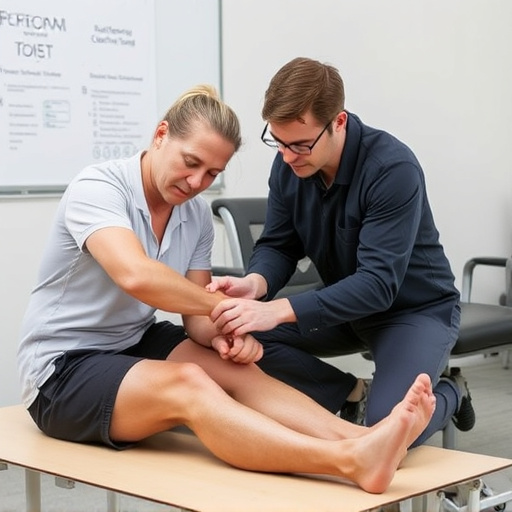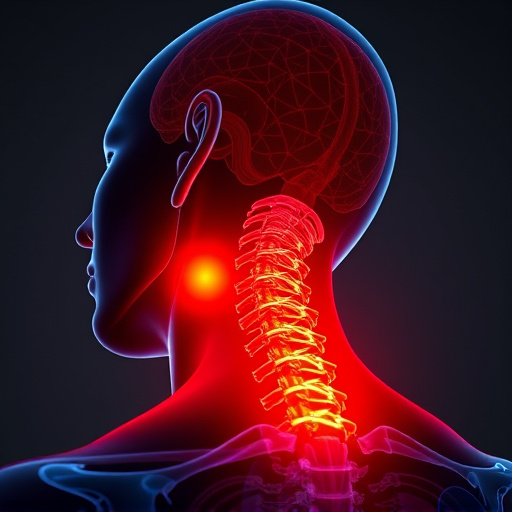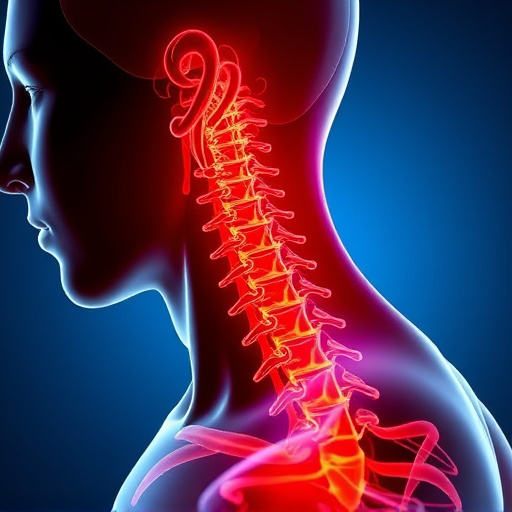Chronic pain, differing from acute pain by its persistent nature without a clear cause, significantly impacts daily life and well-being. Management strategies include understanding root causes, combining medication with lifestyle changes, and specialized treatments like chiropractic care or physical therapy. Holistic approaches such as mindfulness meditation, cognitive behavioral therapy, shockwave therapy, rehabilitation programs, patient education, and support help reduce pain perception, improve mobility, and enhance overall daily functionality. These methods promote better physical health, mental well-being, and improved quality of life by reducing stress, anxiety, joint pain, and muscle tension, while also improving sleep quality and lowering depression risk. Effective chronic pain management empowers individuals to regain control over their lives and embrace an active lifestyle.
Chronic pain, a persistent companion for millions, can significantly impact daily functionality. Understanding its nuances and implementing effective chronic pain management strategies is paramount for reclaiming control over one’s life. This article delves into the multifaceted aspects of managing chronic pain, exploring its effects on everyday activities and offering practical solutions to enhance lifestyle and overall well-being. By understanding these approaches, individuals can embark on a path towards improved life quality.
- Understanding Chronic Pain and Its Impact on Daily Life
- Strategies for Effective Chronic Pain Management
- Enhancing Lifestyle and Well-being through Pain Control
Understanding Chronic Pain and Its Impact on Daily Life

Chronic pain is a complex condition that significantly impacts an individual’s daily life and overall well-being. Unlike acute pain, which serves as a warning signal to avoid potential harm, chronic pain persists for months or even years, often with no apparent cause. This continuous sensory experience of discomfort can lead to physical limitations and emotional distress. Individuals suffering from chronic pain may struggle with basic tasks, such as walking, sleeping, or even performing routine household chores, which can result in reduced mobility and a decline in overall functionality.
Understanding the nature of chronic pain is crucial for effective management. It often stems from various sources, including injuries, medical conditions, or nerve damage, as seen in cases like auto accident recovery, where individuals may experience lingering spinal adjustments and require physical therapy to regain control over their bodies. By implementing tailored strategies, such as medication, lifestyle modifications, and specialized treatments like chiropractic care or physical therapy, chronic pain management can help individuals reclaim their daily routines and enhance their overall quality of life.
Strategies for Effective Chronic Pain Management

Managing chronic pain effectively is a multi-faceted approach that involves several strategies tailored to each individual’s unique needs. One key component is combining various treatment options, such as medication, physical therapy, and lifestyle modifications. For instance, regular exercise tailored by a professional can significantly improve muscle strength and flexibility, reducing pain and enhancing mobility. Additionally, techniques like mindfulness meditation and cognitive behavioral therapy help individuals manage their pain perception and reduce stress, which can exacerbate chronic pain.
Another innovative approach gaining traction in chronic pain management is shockwave therapy, offering non-invasive relief for conditions like tendonitis and certain types of back pain. Similarly, injury rehabilitation programs play a crucial role in restoring function and reducing pain associated with long-term injuries. These strategies, combined with patient education and support, empower individuals to take control of their chronic pain, improving overall daily functionality and quality of life.
Enhancing Lifestyle and Well-being through Pain Control

Chronic pain management plays a pivotal role in enhancing lifestyle and overall well-being. By effectively controlling pain, individuals can significantly improve their daily functionality and quality of life. This includes being able to engage in activities that were once limited due to pain, such as exercising, working, or even simply enjoying hobbies. With proper chronic pain management, people can say goodbye to the constant discomfort that has been holding them back.
One of the key benefits is the reduction of stress and anxiety associated with chronic pain. Pain control methods, including spinal adjustments, massage therapy, and medication, can provide much-needed joint pain relief, easing tension in muscles and soft tissue injuries. This not only promotes better physical health but also contributes to mental well-being by improving sleep quality and reducing the risk of depression. Ultimately, managing chronic pain empowers individuals to take control of their lives and embrace a more vibrant and active lifestyle.
Chronic pain management is a transformative journey that goes beyond mere symptom relief. By implementing effective strategies, individuals can regain control over their daily lives, enhancing overall well-being and functionality. Through a combination of medical interventions, lifestyle adjustments, and holistic practices, it’s possible to navigate the challenges of chronic pain, allowing for a more fulfilling and active existence. Embracing these approaches empowers folks to take charge, improving their quality of life significantly.














